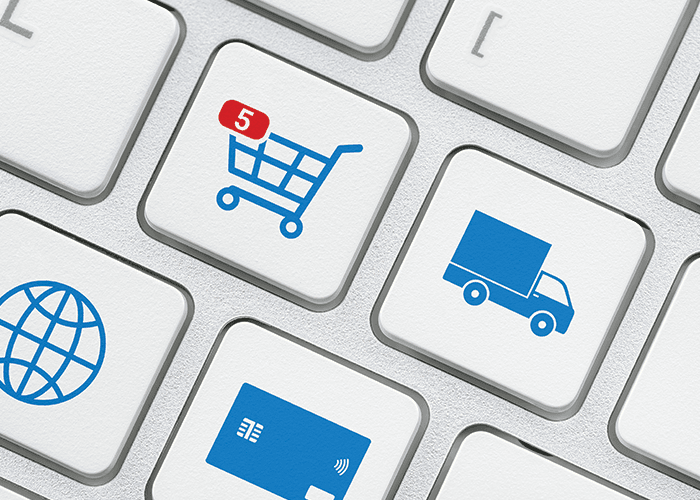The Right Online Sales Channels for Your Retail Business

On this page
Today, in order to ensure a retail business' stability in the market and surpass the competition, it is very important to choose efficient selling channels while also experimenting and looking for new efficient tools.
The Internet has changed many aspects of our lives, including the way we buy and sell things. Retailers have modified their companies from physical shops to multichannel selling businesses. By implementing the wise strategy of multichannel retailing, entrepreneurs manage to not only increase their incomes, but also build a wide and solid network of customers.
There are several types of online platforms where you can sell your products. The only problem is determining which ones to choose. From eBay to Amazon, Facebook to Instagram and others, there are plenty of opportunities to explore, and each has its own unique benefits. Here is a list of the most popular online sales channels you should consider for your retail business.
1 - Amazon
Amazon is probably the first place that comes to mind when thinking about online selling channels for your business. A giant audience and great consumer trust make Amazon a titan of online retail. According to research, 55 percent of Americans begin their product searches with Amazon. It offers an easy-to-use selling platform, and its fees vary depending on the number of items you sell.
2 - eBay
eBay is another well-known online marketplace that has over 170 million active buyers. eBay is a popular choice for retailers who sell rare, vintage or collectible items, as it has an auction-style approach to selling. There are no fees unless you list more than 50 items per month.
3 - Etsy
Etsy is a popular marketplace for selling handmade and crafty items. The number of active buyers has increased steadily over the past few years. Etsy charges a listing fee per item plus a transaction fee.
4 -Bonanza
With its slogan 'Find everything but the ordinary,' Bonanza is a great choice for retailers who sell unique and offbeat items. There are no listing fees, but Bonanza takes a commission depending on the size of the transaction.
5 - Social media
The time we spend on social media is constantly increasing, so the evolution of social networks as sales channels has become a norm. The most popular social networks include Facebook, Instagram, Pinterest, and Twitter. They can all be used for the purpose of selling goods. For instance, CustomWriting.com provides essay writing help and makes use of social media to market their excellent services.
6 - Rakuten
Rakuten is the Japan-based international marketplace that gives retailers tools to reach customers at each stage of the shopping experience. It's the fourth largest e-commerce company in the world with 1 billion users worldwide. Rakuten has a membership program which costs $33 per month.
7 - Newegg
Newegg is an online sales channel for selling electronics, computer hardware, and tech gadgets. It reaches more than 50 countries and has over 32 million customers. There is a standard free program for sellers along with two paid options.
8 - Zibbet
Zibbet is a well-known platform for selling handmade products and art. You don't need to pay any fees if you sell up to 10 pieces per month.
9 - Wish
Wish is currently the leading mobile commerce platform in America and Europe. It has over 100 million global users and 1 million daily active users. It is a popular platform for selling electronics, fashion items, accessories and more. Also, there are no fees unless you make a sale.
10 - GoAntiques
GoAntiques is the perhaps best marketplace if you are selling antique and vintage goods. There is a membership starting at $24.99 per month.
The above list represents the 10 most popular online sales channels. But, how should you choose the right ones for your online business?
In developing new online channels for your retail enterprise, it is important to carefully consider the following:
your business goals;
your audience, where they like shopping (eBay, Amazon, Etsy, ), and their interests;
your payment processing systems (e.g.; PayPal, Apple Pay or Google Wallet) and how they may - or may not - work with different sales channels;
your brand's positioning in the market, be it mass production, handcrafted and unique, luxury, vintage, etc.;
your competitors and the methods they are going to market to sell their products
your ability to invest and incur costs
Considering the above factors will help you identify the strengths and weaknesses of each potential online sales channel. Thus, it will help you to find the ones that are best suited for your business.
Summing up, aside from your website, it is necessary to identify the most promising complementary online selling channels for your retail company. As they all tend to be similar to one degree or another, be careful to choose the right portfolio of channels and boost your company's competitiveness.
About the writer: Emily Watts is a freelance writer and blogger. She has been delivering her valuable publications through online resources for more than four years now. Areas of Emily's interest and expertise include business, retailing, personnel management, and economy.
Join the #retail, #inspiringretail and #SmartStore conversation on Twitter @RetailNext, as well as at www.facebook.com/retailnext.
About the author:

Emily Watts




